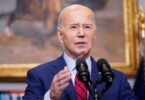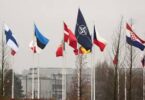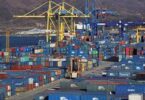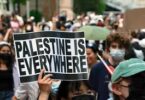NIAMEY/ABUJA (Reuters): West African regional bloc ECOWAS sent a delegation to Niger on Wednesday to negotiate with the military officers who seized power in a coup last week, hoping to find a diplomatic solution before they have to decide whether or not to intervene.
The Economic Community of West African States (ECOWAS) has imposed sanctions on Niger and threatened to authorise the use of force if the coup leaders do not reinstate elected President Mohamed Bazoum within a week from last Sunday.
“The military option is the very last option on the table, the last resort, but we have to prepare for the eventuality,” said Abdel-Fatau Musah, ECOWAS Commissioner for Political Affairs, Peace and Security.
“There is a need to demonstrate that we cannot only bark but can bite,” he told reporters, as regional defence chiefs started a two-day meeting in the Nigerian capital Abuja.
ECOWAS has struggled to contain a democratic backslide in West Africa and had vowed that coups will no longer be tolerated after military takeovers in member states Mali, Burkina Faso and Guinea and an attempted coup in Guinea-Bissau in the last two years.
Nigeria cut power supplies to Niger, a Niger state utility document showed on Wednesday, while truckers in Niamey were stranded by border closures – early signs of fallout from the bloc’s sweeping sanctions.
The 15-nation regional bloc has taken its hardest line yet on Niger, prompting Mali and Burkina Faso, also ruled by juntas, to say that any military intervention in Niger would be considered a declaration of war against them too.
The ECOWAS delegation to Niger is being led by former Nigerian military leader Abdulsalami Abubakar, who arrived on Wednesday to start talks with the junta.
Abubakar, a retired army general, served as Nigeria’s head of state for a year before holding elections and handing back power to civilians in 1999.
“The task of restoring democratic governance in Niger is fraught with potential hurdles and complications,” said General Christopher Musa, Nigeria’s Chief of Defence and Chairman of the ECOWAS Defence Chiefs.
“Our decisions will send a strong message about our commitment to democracy, our intolerance for unconstitutional changes of government, and our dedication to regional stability,” he said at the meeting in Abuja.
The junta in Niger is led by the former head of Bazoum’s presidential guard, General Abdourahmane Tiani, who shut Bazoum in his palace last Wednesday and later declared himself head of state.
Niger is a key Western ally in a fight against Islamist insurgents, and the coup has been condemned by foreign powers who fear it could allow the militants to gain ground.
“The UK very much welcomes ECOWAS’ actions and (they) are indeed decisive actions with a strong commitment to democracy,” said British Foreign Secretary James Cleverly after meeting Nigerian President Bola Tinubu on Wednesday.
FOREIGNERS EVACUATED
The United States said it was set to evacuate some staff and families from its embassy in Niger even as the mission remains open and senior leadership continues working there.
France and Italy have been evacuating European citizens from Niger amid growing fears of conflict. The first military planes carrying European nationals landed in Paris and Rome on Wednesday.
“Yesterday and today, with the help of our French friends, we were already able to fly more than 40 Germans out of Niger,” said German Foreign Minister Annalena Baerbock, adding there would be more flights.
“It is also with this same unity and determination that we, as the European Union, support international efforts to restore constitutional order in Niger,” she said.
France said it had evacuated more than 350 French people so far.
France, the United States, Germany, and Italy have troops in Niger on counterinsurgency and training missions, helping the army to fight groups linked to al Qaeda and Islamic State.
There has been no announcement of troops being withdrawn so far. Germany’s defence minister said on Wednesday that there were no concerns about the safety of German soldiers.
Niger is the world’s seventh-biggest producer of uranium, the radioactive metal widely used for nuclear energy and treating cancer.
The European Union said earlier this week that it had sufficient inventories of natural uranium to mitigate any short-term supply risks.







